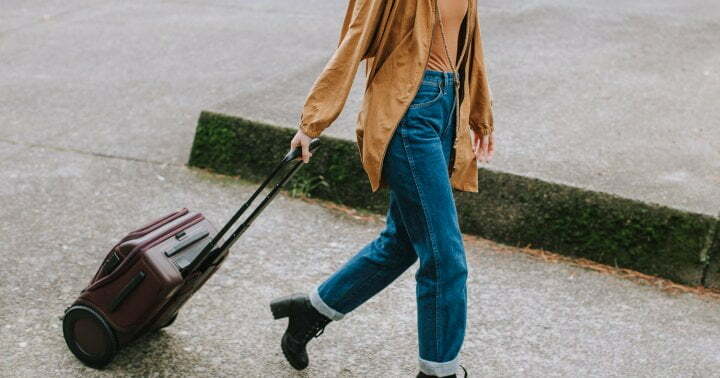Traveling Again? Peep This Functional MD’s Jet-Lag-Fighting Checklist

Just as getting light in the morning can help your body acclimate, blocking light at night will help you sleep easier in a new time zone.
“Having a completely dark room is essential,” Lipman explains, since “any little bit of light is going to inhibit your body’s own production of melatonin.” For this reason, he always travels with an eye mask.
Once it’s time for lights out on that first night, he’ll turn down the temperature of his room (67 degrees Fahrenheit is the warmest he recommends for sleep), take another melatonin to help his body acclimate, and begin the process of winding down from the day.*
“I always say you can’t go at 100 miles an hour and then stop and expect to go to sleep,” he explains. “There needs to be some transition period between your wake time and your sleep time.” Your wind-down routine can involve a warm bath, restorative yoga, or, Lipman’s personal favorite, calming music.
He aims for tunes that clock in at around 60 beats per minute, the rhythm of a slow heart rate, to send a signal to the body that the day is done and it’s time to nod off for tomorrow’s adventures.
This article was originally published by mindbodygreen.com. Read the original article here.



